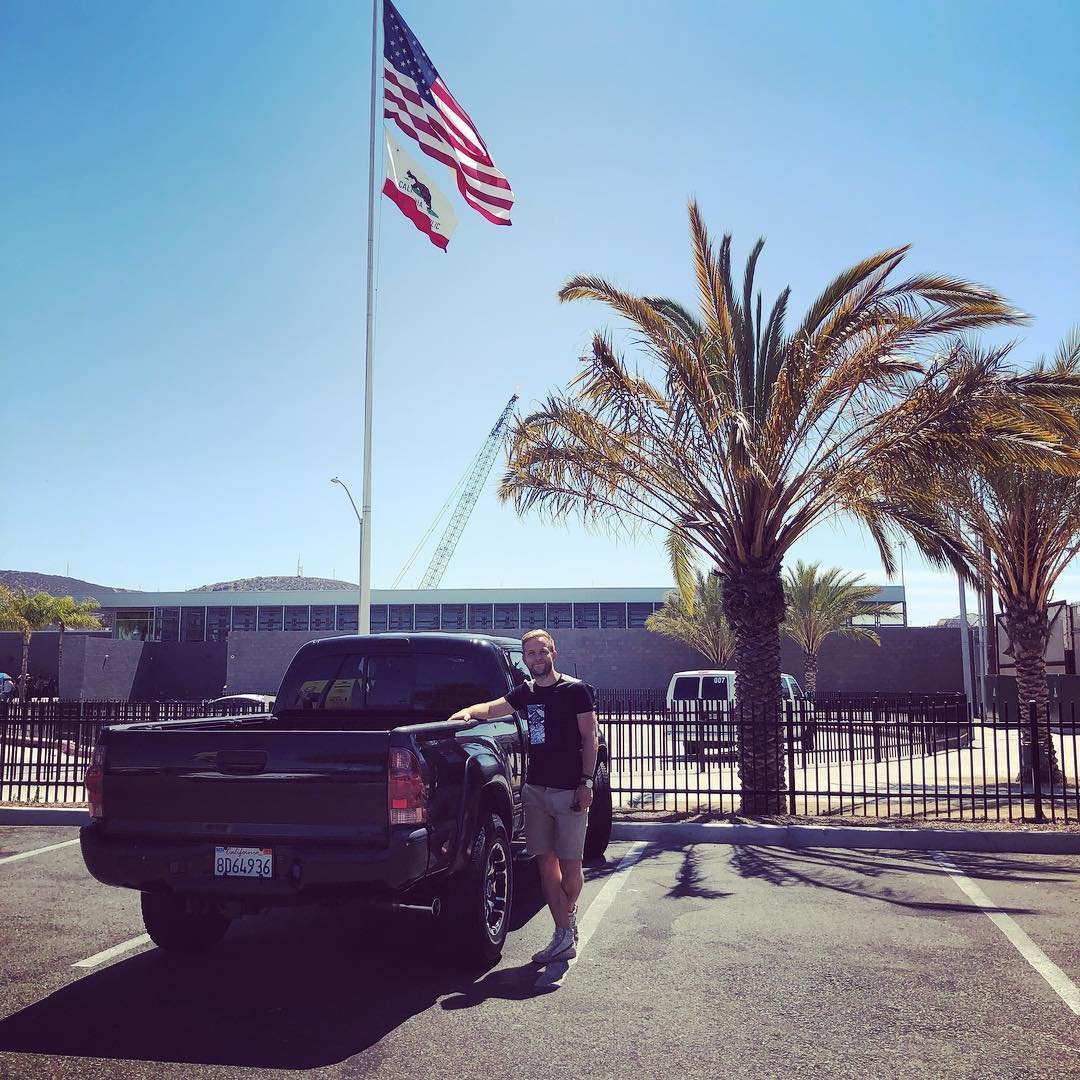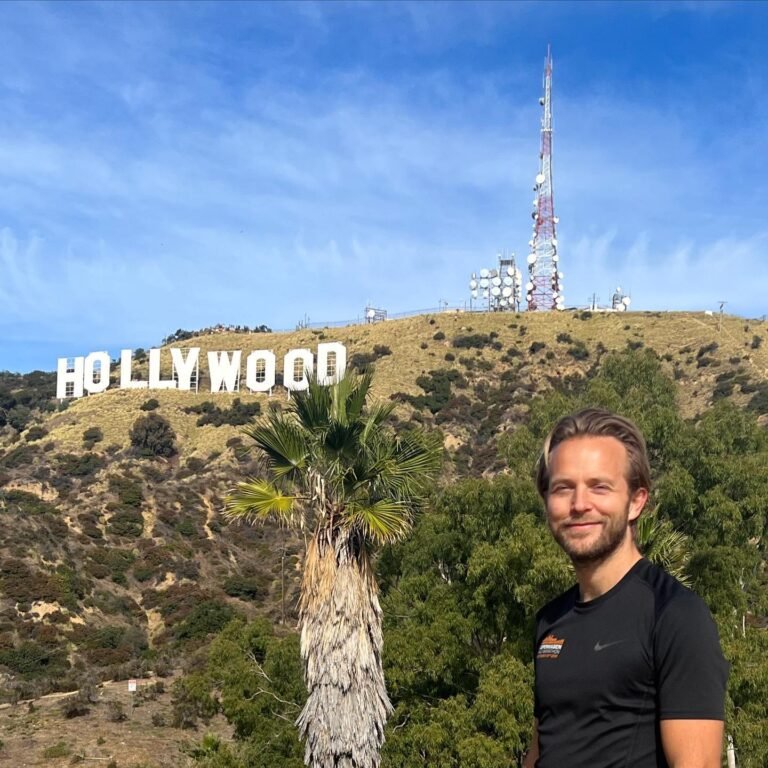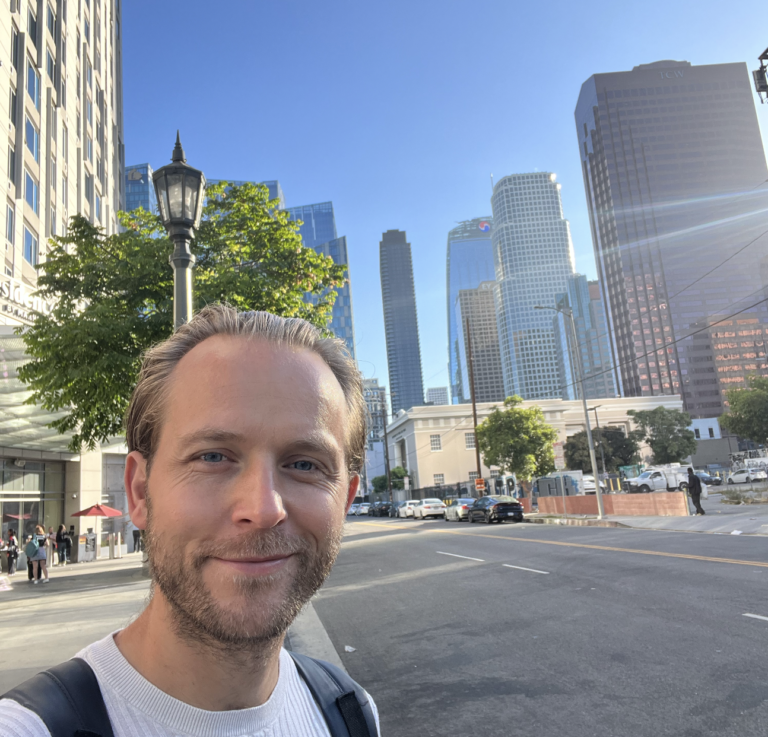How U.S. Visa Laws Could Change in 2025: What Entrepreneurs Need to Know
Okay, let’s face it—visa stuff can be really confusing! It’s one of those things that never seems to stay the same. If you’re an entrepreneur hoping to enter the U.S., it’s like playing a game that can change the rules at any moment! And guess what? As we head into 2025, there’s a lot of chatter around changes to U.S. visa laws. While some changes are looking promising, others could make things trickier for many business owners. Let’s dive into what could change and what it means for you. Spoiler alert: there are some exciting possibilities, but also a few things you should watch out for. Ready? Let’s go!
Understanding the Current Landscape: How U.S. Visa Laws Have Evolved Over Time
U.S. visa laws are not static—they are in constant flux, with changes introduced to reflect broader economic, political, and social shifts. Over the years, these policies have evolved significantly, influenced by the priorities of different administrations and changing needs in the U.S. labor market. These shifts have resulted in periods of greater flexibility for some visa categories and tighter restrictions for others, making it crucial for entrepreneurs and aspiring business owners to stay informed.
One of the most notable factors contributing to these changes has been the shift in presidential administration and their approach to immigration and visa policies. For instance, during the Obama administration, there was a strong push to foster innovation by supporting foreign entrepreneurs through measures like the International Entrepreneur Rule, designed to make it easier for foreign nationals to work in the U.S. by launching a startup. However, under the Trump administration, immigration policies took a more restrictive turn, with significant reductions to the annual cap for H1B visas, the tightening of visa approval processes, and overall less favorable conditions for foreign-born entrepreneurs looking to launch businesses in the United States.
This pattern of changes has often created uncertainty for entrepreneurs who depend on the stability and predictability of the visa system. Under the Obama administration, certain business-oriented visas, like the O-1 for individuals with extraordinary abilities and the EB-5 investor visa, saw more streamlined pathways to residency and success. In contrast, the Trump administration, with its “America First” policy, made drastic changes, including attempting to introduce new restrictions on H1B visa holders, challenging the interpretation of the EB-5 investor visa program, and making entry for international entrepreneurs much more challenging.
Understanding these shifting dynamics is vital for entrepreneurs who dream of establishing themselves in the U.S. The landscape today is significantly different from what it was just a decade ago, and the laws can fluctuate on the federal and state levels. The unpredictability of the “entrepreneur visa”—a highly debated and evolving area—is a prime example of the complications entrepreneurs face. While a visa that favors startup founders was once something of a possibility, the political battles over such programs have made it uncertain whether they’ll come to fruition as expected.
So, why is this historical knowledge important for current and prospective entrepreneurs? If you’re hoping to launch a business or make the U.S. your home base, it’s essential to recognize that what worked for someone last year may not apply tomorrow. The shifting rules around H1B visa caps, which allow companies to hire foreign workers, can drastically impact the availability of talent for startups. An individual entrepreneur trying to move forward with a startup might also face unpredictable visa laws that could make or break their chances of successfully launching.
For example, understanding the pattern of visa law changes in response to various administrations can help business owners gauge where things might be headed next. Awareness of shifts in visa programs and being proactive about preparing for those changes can help avoid delays or setbacks in the pursuit of an entrepreneurial dream in the U.S.

Changes Under the Trump Administration: The Last Big Shift
The Trump administration marked one of the most significant periods of change for U.S. visa laws, resulting in a wave of fluctuating visa numbers and stricter immigration policies that dramatically impacted business owners and entrepreneurs. One of the most notable shifts occurred with the well-known H1B visa, which has long been the key work visa for skilled workers in the U.S., especially in industries like technology, engineering, and healthcare.
Under the Trump administration, several efforts were made to overhaul the H1B program, introducing sharp cuts to specific categories of applicants and restricting eligibility requirements. This tightening led to much uncertainty and frustration for many entrepreneurs. H1B visa caps, for instance, were reduced significantly, with the annual lottery system becoming even more competitive. This restricted the number of foreign-born workers who could come to the U.S. each year, particularly impacting industries that have historically relied on global talent, like tech.
What did these changes mean for business owners hoping to build a company in the U.S.? Well, while the overall immigration landscape grew tighter, certain industries, especially tech, found some pathways that were a bit more favorable due to powerful voices advocating for changes in the system. Some of the world’s biggest entrepreneurs, including Elon Musk, pushed to increase the H1B visa caps, recognizing the crucial need for top-tier global talent to fuel innovation and the growth of tech startups. Their push was backed by a sense of urgency—the tech sector is known for its rapid growth, and access to highly skilled foreign workers was seen as critical for maintaining competitive advantage.
However, this effort didn’t extend much beyond the tech sector, leaving many other industries with less support. Entrepreneurs in sectors like hospitality, entertainment, and healthcare often found themselves caught in the crosshairs of an increasingly restrictive visa system. The H1B visa process, already known for its complexity, became even more stringent, with a number of applications being denied even when candidates seemed to possess the right qualifications, making the process both more difficult and unpredictable.
This tightening of the visa system led to higher rates of denials, more delays, and much confusion. It didn’t matter how well-qualified applicants were or how crucial their role in a business was—sometimes even the smallest technicalities could lead to a rejection. For entrepreneurs hoping to start or scale their companies in the U.S., this unpredictability was a huge challenge. Frustrating doesn’t even begin to describe it—imagine preparing your business model, hiring the right people, and meeting all necessary requirements, only to have your application thrown into limbo or flat-out denied due to a change in policy or a new restriction.
That said, there were still a few bright spots during this period. One key outcome from the push to increase H1B visa caps was the extra room it created for tech founders and tech companies who could prove their need for skilled workers in the field. Although this didn’t expand across all sectors, it did provide more opportunities for those seeking to grow innovative tech startups, particularly in fields like artificial intelligence, software development, and research.
For tech entrepreneurs, these changes—while often unpredictable—actually paved the way for more opportunities within their sector. The proposed increases to the number of H1B visas specifically benefited those trying to attract international talent to fuel a growing tech business. If you were in this field, you may have found a small but valuable window to build your team with qualified professionals, despite the otherwise difficult landscape. However, these shifts weren’t an all-encompassing win—other sectors still found themselves dealing with more regulations and fewer opportunities for hiring global talent.
In summary, the changes to the visa landscape during the Trump administration were a double-edged sword. On the one hand, certain industries, particularly tech, experienced greater access to H1B visas through lobbying efforts, but on the other hand, the overall tightening of eligibility criteria and the increased uncertainty surrounding the visa process led to challenges for many other entrepreneurs. If you were trying to launch a U.S.-based business during this time, you likely encountered a host of roadblocks that made the process considerably more complicated and uncertain. While some saw gains, it certainly wasn’t smooth sailing for all.
2025—What Will Change?
As we look toward 2025, significant changes in U.S. visa laws and immigration policies could greatly affect business owners, entrepreneurs, and skilled workers. With shifting political climates, evolving global trends, and technological advancements, entrepreneurs will likely encounter an updated landscape—one that could make opportunities more accessible for some while presenting new challenges for others.
Will H1B Visas Become More Accessible or Stay Competitive?
One of the most anticipated questions surrounding U.S. immigration law is the future of the H1B visa program. The H1B visa has historically been the key work visa for foreign professionals, particularly in high-demand fields like technology, engineering, and finance. Over recent years, the H1B system has become increasingly competitive, with stricter requirements, a lottery system for applications, and higher rates of denial.
In 2025, there may be a push for reform. With mounting pressure from tech companies, startups, and industry advocates, there is hope that the Biden administration will focus on making H1B visas more accessible. At the same time, there’s the possibility that caps may remain high, and the selection process could still be as unpredictable as ever.

The Rise of Virtual or Remote Visas and New Startup Visas—A Potential Game-Changer for Entrepreneurs
2025 could mark a turning point for foreign entrepreneurs looking to start businesses in the U.S., especially as the conversation surrounding remote work visas and international startup opportunities gains momentum. Governments around the world are becoming increasingly aware of the potential to attract entrepreneurial talent from abroad—people who can bring new business ideas without necessarily relocating their entire teams to the U.S. These virtual or remote visas could enable entrepreneurs to set up U.S.-based operations and benefit from all the resources, market access, and opportunities that come with having a business presence in the States, while still running the operations remotely from their home countries.
For founders seeking to launch new startups, this type of visa could be revolutionary. It could offer a much smoother entry into the U.S. market, allowing them to scale up without the immense complexities of the current visa options like the H1B or L-1. Entrepreneurs would have a chance to tap into critical markets, apply for U.S. government-backed grants, or engage with investors while still operating remotely or managing teams internationally.
Equally exciting is the growing focus on startup visas, an initiative that would specifically cater to entrepreneurs wishing to build innovative businesses in the U.S. The idea is to reduce the barriers to entry for founders trying to scale up. These new visas could help reduce bureaucracy, encourage more investment in startup hubs like Silicon Valley, and promote quicker growth for U.S.-based businesses in various sectors, including technology, healthcare, green energy, and even niche markets like sexual wellness. The shift to create dedicated visas for startup founders who demonstrate clear value could signal a move toward an economy driven more by innovation and entrepreneurial activity.
How Some Changes Could Impact Niche Markets, E.g., Sexual Wellness and Tech Industries
2025’s changes to U.S. visa policy could have a particularly profound impact on niche industries, such as sexual wellness and tech. For the tech sector, these changes could bring fresh opportunities, such as an easier process for bringing on international talent or expanding networks with global reach. As tech startups around the world develop new products, enhance services, and explore cutting-edge innovations, the U.S. government may want to ensure that visa programs cater to this rapidly growing industry—especially since the nation’s tech sector is still one of the largest and most influential worldwide.
For sectors like sexual wellness, which have historically faced more regulatory and cultural barriers in the U.S., the shifting landscape may offer a new level of opportunity and inclusivity. With increasing attention on topics surrounding sexual health, intimacy, and personal well-being, a surge of entrepreneurship in the sexual wellness space has already begun, and 2025 could mark a more open, progressive environment for those trying to bring new products to market. If the government starts introducing startup-focused visas tailored to industries with clear societal or public health benefits, this could allow for greater diversity of business owners entering the U.S. market.
Additionally, changes in visa laws could make it easier for small businesses in niche industries, like sexual wellness, to access resources, funding, and partnerships that were once difficult to attain because of visa barriers. For these businesses, a combination of remote startup visas and government-sponsored initiatives for diverse entrepreneurs could lead to broader representation and increased investment in traditionally underrepresented sectors.
Why It Matters for You: Why 2025 Could Bring Exciting Opportunities and Challenges
Why does it matter for you as an entrepreneur? Simple. 2025 could bring exciting updates to the immigration and visa system that impact how you can establish your business in the U.S. For example, the evolving conversations about remote work visas and startup visas directly address the needs of entrepreneurs like you—especially if you’re planning to operate a business or recruit talent across borders without physically relocating everyone. This flexibility could help you grow your startup while tapping into the vast opportunities within the U.S. market.
But keep in mind that just because the future looks promising for some doesn’t mean it’s all sunshine and rainbows for everyone. While startup-focused visas might provide relief and encourage innovation in certain sectors, we can expect other industries to face a more rigid visa application process or even cuts to programs they once depended on.
Changes will certainly come, but which entrepreneurs ultimately benefit will depend on a variety of factors, including sector, business type, and the trajectory of global and U.S. policies on immigration and immigration reform. As an entrepreneur considering launching or growing a business in the U.S., the future is uncertain—yet full of possibilities. Being prepared for change and understanding what is likely to come in 2025 is a strategic move to ensure that you’re one of the entrepreneurs who successfully navigates this evolving landscape and seizes emerging opportunities.

What Entrepreneurs Should Know for 2025 Visa Process
As we approach 2025, there are growing conversations surrounding the U.S. visa process, particularly for entrepreneurs looking to establish or expand their businesses. The landscape is shifting in response to changes in U.S. immigration policies, and this is likely to have significant implications for business owners seeking opportunities in the States. Key aspects to anticipate include evolving laws, a continued debate over work visas like the H1B, and increasing pressure for entrepreneurial-focused visa programs that aim to reduce confusion and streamline the application process.
Favoring Certain Sectors with New Laws
In 2025, expect a push toward new policies that could benefit specific sectors more than others. For example, high-growth industries like tech, green energy, and wellness may find that future visa laws are designed to align with the U.S. government’s priorities of fostering innovation and economic expansion in key sectors. Tech startups—with their rapid growth and the global demand for talent—are likely to receive attention when it comes to visa laws. Policies aimed at attracting talent to fill critical positions will have a substantial impact, potentially creating more opportunities for technology-focused entrepreneurs seeking to build in the U.S. market. Likewise, as industries like sexual wellness and health-tech continue to experience rapid growth, it is likely that future reforms could aim to accommodate these markets by implementing laws tailored to unique business needs.
The Fight Over Work Visas Like H1B Isn’t Going Anywhere Soon
The debate surrounding the H1B visa isn’t about to settle in 2025. In fact, it’s likely that issues related to work visas will continue to play a key role in U.S. immigration reforms. Over the last few years, significant frustration has mounted surrounding the H1B program, especially as there have been limited quotas and an unpredictable application process that leaves many entrepreneurs and business owners in the lurch. Some of the large industries, such as tech or even emerging fields like green energy, have advocated for increasing these visa quotas to meet growing demand for skilled workers.
It’s crucial for entrepreneurs in these high-demand sectors to stay informed about potential changes in the H1B lottery and explore alternative options such as specialty occupations visas or other work visa pathways that could open up more accessible routes for foreign talent. Whatever happens in 2025, one thing is clear: this ongoing battle over work visas will have a big impact on whether or not foreign business owners or employees can gain access to work in the U.S.
More Scrutiny and Entrepreneurial-Focused Programs
One thing business owners should brace themselves for in 2025 is increased scrutiny around the visa process. With U.S. immigration facing heightened global scrutiny, the process is only getting more stringent. That means more paperwork, stricter vetting processes, and longer processing times. However, all this scrutiny doesn’t necessarily need to be negative. In fact, it’s a sign that U.S. immigration authorities are looking for efficiency and clarity in the system—especially with an eye toward establishing dedicated entrepreneurial-focused visa programs. While these new entrepreneurial visas are still evolving, there’s hope that they will reduce some of the confusion entrepreneurs face when selecting which visa best suits their needs.
New visa types or entrepreneur-friendly adjustments in the system could be exactly what such sectors need to grow or enter the U.S. market. On the flip side, however, it’s also critical for these entrepreneurs to realize that more scrutiny means fewer chances for error. A wrong assumption or lack of attention to the details of the visa application can result in delays, denials, or increased difficulties in growing their U.S. operations.
What Does This Mean for You?
As you plan for 2025, one crucial takeaway is the need for awareness and understanding of the evolving visa landscape. Whether you’re launching a new tech company, expanding a wellness business, or exploring new opportunities, it’s essential to stay on top of how changes in the law might influence your specific situation.
Here’s a crucial tip based on my experience: If you’re unsure of which visa option is the best fit, don’t guess—seek guidance from professionals who understand the system! This is one area where it’s better to invest in expert advice than risk stumbling through the process and running into avoidable issues. Many entrepreneurs—perhaps overly confident in their understanding of the system—believe they have it all figured out. But too often, they discover that they’ve chosen the wrong path, leading to delays, wasted money, and added stress.
Preparing for the Unknown in 2025
Now, looking to 2025, there’s no exact crystal ball to tell us what will unfold. The only certainty is that immigration laws will continue to evolve, and this may either open doors or close them for entrepreneurs. Political shifts, industry priorities, and broader economic forces will all contribute to a constantly changing landscape. Entrepreneurs must be ready for both possibilities—whether those changes bring opportunity or extra challenges. With preparation, guidance, and flexibility, you can position your business to adapt to whatever changes come your way.
The key takeaway is that while the landscape can be complex, the opportunities are there for those who are strategic and well-informed. 2025 could be a year that offers exciting changes and new programs tailored to your needs—so get prepared, stay alert, and be ready for whatever may come!

The Risks: What Could Be at Stake for Entrepreneurs
While there is much promise for entrepreneurs in terms of potential visa program changes, it’s essential not to overlook the risks that accompany these evolving policies. In fact, understanding and preparing for these risks is just as crucial as being aware of opportunities, as certain circumstances—such as economic shifts and systemic delays—can significantly impact the entire visa application process. Several important risks stand to affect entrepreneurs as they plan for 2025 and beyond, and understanding these factors is vital for ensuring the future of your business operations in the U.S.
Economic Shifts Could Impact Entrepreneurial Visa Acceptance
Economic instability in the U.S. has the potential to influence how entrepreneurial visas are treated, with drastic consequences for applications. When the economy faces downturns, policymakers may adjust immigration laws to reflect the economic climate. This often results in more stringent criteria for visa applicants, reduced availability of certain visa categories, or even new restrictions that could severely limit opportunities for some business owners.
For entrepreneurs, this translates to greater uncertainty around visa approvals. For instance, if there’s an economic recession, the U.S. government could prioritize visas for essential or high-demand sectors (such as health or technology), leaving industries deemed “less critical” to face higher rejection rates. In times of fiscal tightening, economic decisions might push political leaders to prioritize workers or businesses who will have the quickest positive impact on the economy, over entrepreneurs who may take longer to generate revenue. Such adjustments could mean that what you applied for previously isn’t available, forcing you to explore other routes or find creative ways to meet eligibility criteria.
Changes to Eligibility and Possible Cuts to Certain Types of Visa Categories
Another critical risk lies in the constant changing eligibility criteria that impact visa applicants. Each year, as the political landscape shifts and the need for skilled labor fluctuates, the laws regulating which entrepreneurial categories are eligible for U.S. work visas change. Certain visa types that might have been highly accessible for your sector could become restricted or even scrapped altogether due to policy reforms. Historically, we’ve seen adjustments to visas like the H1B and even notable drops in available slots or increased requirements for applicants, effectively limiting access for some.
The continuous tug-of-war between stakeholders and policy makers means there’s always the chance that categories beneficial to you, such as the startup visa or H1B tech visa, may undergo cuts or restrictions. Entrepreneurs may find themselves caught in a situation where a visa program, previously relied upon, is suddenly inaccessible due to new immigration reforms or changes in governmental priorities. One key example of this is how the availability of H1B visas—the most sought-after visa for tech professionals—has seen years of regulatory changes, leading to fluctuating caps, eligibility requirements, and redefined qualifying criteria. For someone planning a move to the U.S. based on a specific visa category, this evolving environment can create significant risk.
Risk of Bureaucratic Delays, Particularly as the System Overhauls
Perhaps one of the most unpredictable risks for entrepreneurs seeking U.S. visas is the inevitable bureaucratic delays that often come with immigration overhauls. As immigration policies are restructured, the system can experience logistical and administrative challenges, often leading to long wait times and significant delays. Whether you are seeking approval for a visa extension, reapplying after a denial, or submitting a completely new application, these administrative bottlenecks can drastically affect your business timelines.
Additionally, there may be an increase in delays across all visa applications as the bureaucracy gears up to implement new rules and processes. Overhauls often involve system upgrades, restructuring, or policy changes, which can lead to inefficient or delayed processing. If you find yourself stuck in this phase, it could prolong the approval process and interfere with critical business timelines. Even if you manage to qualify for a visa and meet eligibility, you still might face long waits, preventing you from moving ahead with your plans to expand, hire, or enter the U.S. market.
The unpredictability of how long it may take to secure approvals—and how these delays may coincide with your business needs—means that you’ll need to stay flexible and have alternative plans in case your application takes longer than anticipated.
The Political Landscape: Shifting Priorities and Laws
Another significant risk lies in the political landscape. Immigration is often a heavily debated subject, and political shifts, particularly with different presidential administrations, can directly affect your visa process. The shifting of party priorities and changes in leadership can create uncertainty, especially when you apply for a visa during an unpredictable period of political transition.
For example, let’s say you are applying for a visa just as a major election draws near, and new political figures take office with a new approach to immigration. Changes in political leadership may bring drastic reforms to the visa system or affect its accessibility for certain business sectors. Depending on the political atmosphere, you might see a push for new regulations that increase restrictions on visa approvals, potentially causing significant setbacks or even denials.
Additionally, political players often bring forward new immigration bills or propose executive actions that directly target specific industries, such as tech, wellness, or education, which could impact your eligibility. Entrepreneurs who rely on these political cycles could see visa applications impacted by the immediate swings in political ideologies.
Delays in Visa Approval: Uncertainty Is the Worst Risk
Ultimately, many of these factors compound the risk that entrepreneurs face: uncertainty. It’s one of the biggest barriers for anyone hoping to move a business into the U.S., launch something new, or scale operations.
For entrepreneurs, uncertainty means having to constantly adjust to new sets of rules or manage a timeline based on an immigration process that doesn’t guarantee immediate success. With visa processing delays only likely to increase in the face of political shifts, economic change, and procedural reform, the future can sometimes feel out of control. You might plan to come to the U.S. to capitalize on market opportunities but find the visa process a much slower and more unpredictable road.
What to Keep in Mind
In short, while the outlook for U.S. entrepreneurial visas may be promising with new programs or political will to support specific business industries, entrepreneurs must navigate these risks carefully. Changes to eligibility, political fluctuations, economic shifts, and bureaucratic inefficiencies can all have significant impacts on your ability to expand your business in the U.S. or to even be granted access in the first place.
To mitigate these risks, entrepreneurs should stay informed about the current trends and upcoming visa changes. Seek professional advice to understand the best pathways, remain adaptable, and have contingency plans in place to account for any potential delays or shifts. Most importantly, make sure that your application is thorough and accurate to avoid unnecessary setbacks that could negatively impact your business aspirations in the U.S. While there is much optimism ahead, remaining prepared for potential hurdles is your best strategy for success.
Conclusion: Keeping Up with U.S. Visa Changes
So, should you be worried about visa laws changing? Well, yes and no! As entrepreneurs, it’s crucial to stay informed and ready for anything. Whether visa laws swing toward more support for business owners or become stricter, there will always be ways for savvy entrepreneurs to navigate the system. Just make sure you stay prepared, stay flexible, and always consult a professional when making big moves.
Bottom line: expect change in 2025. And if you want to avoid any major curveballs, keeping tabs on immigration policy trends is more critical than ever.
Maybe you will find this one useful Do You Need an Immigration Lawyer? Here’s When to Say Yes or No






